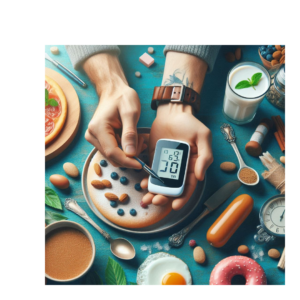Can Your Phone Help Detect Dementia? Exploring RAVCARE’s Potential
Dementia, a debilitating group of conditions affecting memory, thinking, and behavior, is a growing concern worldwide. Early detection offers significant advantages in managing symptoms, planning care, and potentially slowing the disease’s progression. However, traditional methods of diagnosis often involve time-consuming cognitive tests and potentially expensive brain scans.
This is where innovative technology like the RAVCARE digital therapeutics app steps in, offering a potentially revolutionary approach to dementia detection.
RAVCARE: A Digital Approach to Health
RAVCARE focuses on empowering individuals to manage chronic conditions through personalized digital therapeutics. Their app leverages a smartphone’s built-in features and potentially additional peripherals to collect data that might offer insights into cognitive decline.
Here’s a glimpse into how RAVCARE’s app might contribute to dementia detection:
- Cognitive Assessments: The app could incorporate gamified cognitive tests that subtly assess memory, attention, and processing speed. These tests might be designed to be brief and engaging, allowing for frequent monitoring without feeling tedious.
- Passive Data Collection: RAVCARE’s app could passively collect data on daily smartphone usage patterns. Changes in typing speed, app usage frequency, or even the way users interact with the phone’s interface might provide clues about potential cognitive decline.
- Speech Analysis: Speech recognition technology integrated into the app could analyze conversation patterns for fluency, vocabulary usage, and response times. Deviations from baseline speech patterns could be flagged for further evaluation.
- Sleep Tracking: Sleep disturbances are often associated with cognitive decline. The app could leverage smartphone sensors to monitor sleep patterns and identify potential issues that might warrant further investigation.
- Mood Tracking: Dementia can manifest in changes in mood and behavior. The app could allow users to track their mood and emotions, providing data points for healthcare providers to consider.
Benefits and Considerations
The potential benefits of using a smartphone app like RAVCARE for dementia detection are significant:
- Early Detection: Early identification of cognitive decline allows for earlier intervention and management strategies, potentially improving quality of life.
- Convenience and Accessibility: Smartphone-based assessments could be readily available at home, reducing the need for frequent clinic visits.
- Non-Intrusive Monitoring: Passive data collection and gamified assessments offer a less stressful approach to cognitive evaluation compared to traditional methods.
- Longitudinal Data: Regular data collection through the app provides a valuable record of cognitive changes over time, aiding in diagnosis and treatment planning.
However, it’s important to consider some limitations:
- Accuracy and Reliability: While the app might provide valuable insights, it cannot definitively diagnose dementia. Healthcare professional evaluation remains crucial.
- Data Privacy Concerns: Ensuring the security and privacy of sensitive user data collected through the app is paramount. Transparency and user control over data usage are essential.
- Accessibility and Equity: Smartphone technology and data access may not be universal, potentially creating disparities in access to this type of dementia detection tool.
- Early Stage Technology: As a relatively new approach, further research and validation are required to solidify the effectiveness of smartphone-based dementia detection.
The Future of Dementia Detection
RAVCARE’s app represents a promising avenue in the fight against dementia. As the technology evolves and integrates with other wearables or sensors, the potential for comprehensive and accurate dementia detection through our smartphones becomes increasingly realistic.
However, realizing this potential requires a collaborative effort:
- App Developers: Continued research is necessary to refine data collection methods, improve accuracy, and ensure user privacy.
- Healthcare Providers: Integrating app-generated data into clinical assessments and educating patients on its limitations is crucial.
- Researchers: Further studies are needed to validate the effectiveness of smartphone-based dementia detection tools.
- Policymakers: Addressing data privacy concerns and promoting equitable access to technology are essential considerations.
By working together, we can unlock the true potential of tools like RAVCARE and empower individuals to take a more proactive approach to dementia detection, ultimately improving the lives of those affected by this challenging condition.
Disclaimer: It is important to note that RAVCARE’s app is not currently marketed for dementia detection. This article explores the potential of the technology for this purpose, but it is not a substitute for professional medical advice.

A Safe and Effective Way to Reverse Insulin Resistance and Improve Overall Health
A Safe and Effective Way to Reverse Insulin Resistance and Improve Overall Health

A Time to Reflect on Our Health – Tips for Improving Your Health during National Diabetes Month
National Diabetes Month is an excellent opportunity to take control of your health and make lifestyle changes to prevent or manage diabetes.

Carnivore Diet for Prediabetes Reversal
The carnivore diet presents a unique approach to dietary management and may offer potential benefits for individuals seeking to reverse prediabetes.
